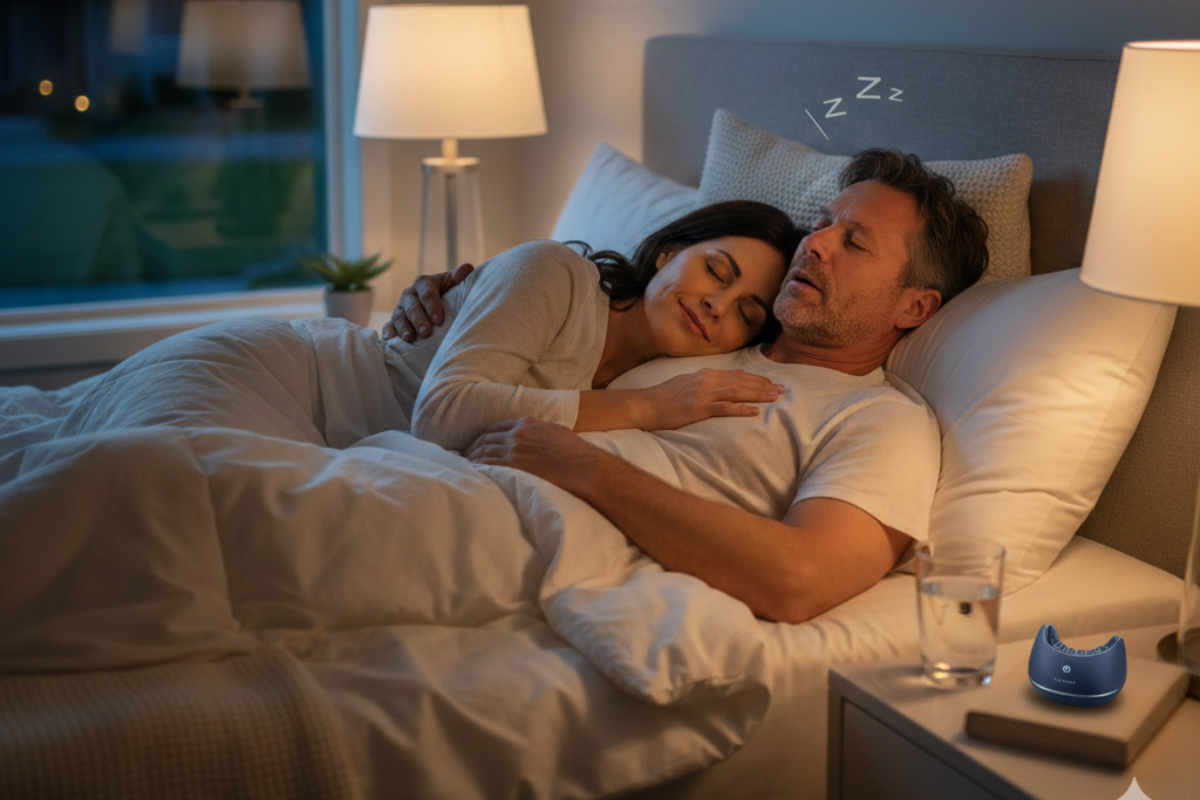Free Shipping - On Orders Over $99 (USA, Canada, UK, & AU)

How Exercise Helps You Sleep
June 17, 2019 2 min read
It’s probably not the first time you’ve heard it: exercise is good for you. Not only does it help create a healthy mind and body balance, it helps the systems that rely on this balance, like sleep. In turn, sleep gives you the energy to be able to exercise (read more about that relationship here). So why is hitting the gym so good for sleep specifically? Here are some of the most compelling reasons:
It helps with insomnia
Surprise - getting in a workout improves sleep quality, which includes increasing the amount of deep, restorative sleep that we thrive on. This also increases that great relaxation we can feel after a fitness-induced slumber.1 Another upside is that the amount of exercise needed to make a difference isn’t that much -- the National Sleep Foundation recommends to get active for 30 minutes a day, 5 days a week to improve sleep quality.2 This aligns with scientific data, including results from a study where those with insomnia started to exercise 30 minutes only three to four times a week, which increased their sleep duration and quality.3
It gives you more shut eye
Getting active helps you feel more tired at the end of the day and makes you fall asleep faster, allowing you to get more Zzz’s. One study found that participants that exercised slept as much as an additional 1.25 hours per night when compared to their those who were not physically active. An extra half hour of working out is definitely worth even 10 extra minutes of sweet sleep.4
It sweats out the stress
We have all had that feeling at least once, we are super exhausted and lay into bed to shut our eyes, but our minds will not shut up! Exercise helps combat this stress and anxiety, which are known to inhibit sleep. A more serious sleep disorder that is correlated with high stress levels, insomnia, is also seen to become reduced significantly through exercise. A study evaluating people with the sleep disorder found that getting active increased not only increased sleep duration and quality, but increased mood and quality of life, allowing participants them to fall asleep with greater ease.5
It helps your sleep cycle
It’s hard to get out of bed regardless, let alone motivate yourself to workout, but after a few days, you will see why it’s worth it. By exercising in the morning and exposing yourself to the rising sun, your melatonin levels can become regulated, helping your body restore a natural wake-sleep cycle. If early rising isn't your thing, working out in the sunshine at anytime of the day will produce the same effect. The idea that exercising close at night is not ideal is commonly mentioned, but the National Sleep Foundation notes that exercise is linked to better sleep quality no matter what time of the day you do it!6
So hop on a treadmill, roll out your yoga matt and get those crunches going, your body will thank you!
_________________
References
1 https://thesleepdoctor.com/2017/05/22/benefits-exercise-sleep/
2 https://www.sleepfoundation.org/articles/how-exercise-impacts-sleep-quality
3 https://www.ncbi.nlm.nih.gov/pmc/articles/PMC2992829/
4 http://jcsm.aasm.org/viewabstract.aspx?pid=29078
5 https://www.huffpost.com/entry/does-exercise-affect-how_b_9421922
6 https://www.sleepfoundation.org/articles/5-facts-about-sleep-and-exercise
Also in Blog

Healthy Sleep Goals For 2026
December 22, 2025 6 min read

💨 Are Your Nighttime Breathing Issues Robbing You of Your Health and Your Energy?
December 12, 2025 3 min read
Breathing issues during sleep, collectively known as sleep-disordered breathing, are a major public health concern.

Is Your Snoring a Sign of Something More Serious? Unpacking the Science of Sleep
December 05, 2025 3 min read
When you snore, what's actually happening?
Join our Insiders Club
Every week you will receive specials, discounts, and giveaways.
Categories
- Better Sleep
- depression
- Fitness
- funny animal
- Global Citizenship
- health
- Mental Health
- mouthpiece
- nutrition
- pillow
- Productivity
- relationships
- sleep
- sleep apnea
- sleep deprivation
- Sleep Tech
- snoring
- snoring humor
- snoring jokes
- snoring sounds
- stop snoring
- StopSnoringStartLiving
- technology
- Tongue displacement
- travel
- video
- Young Adult

